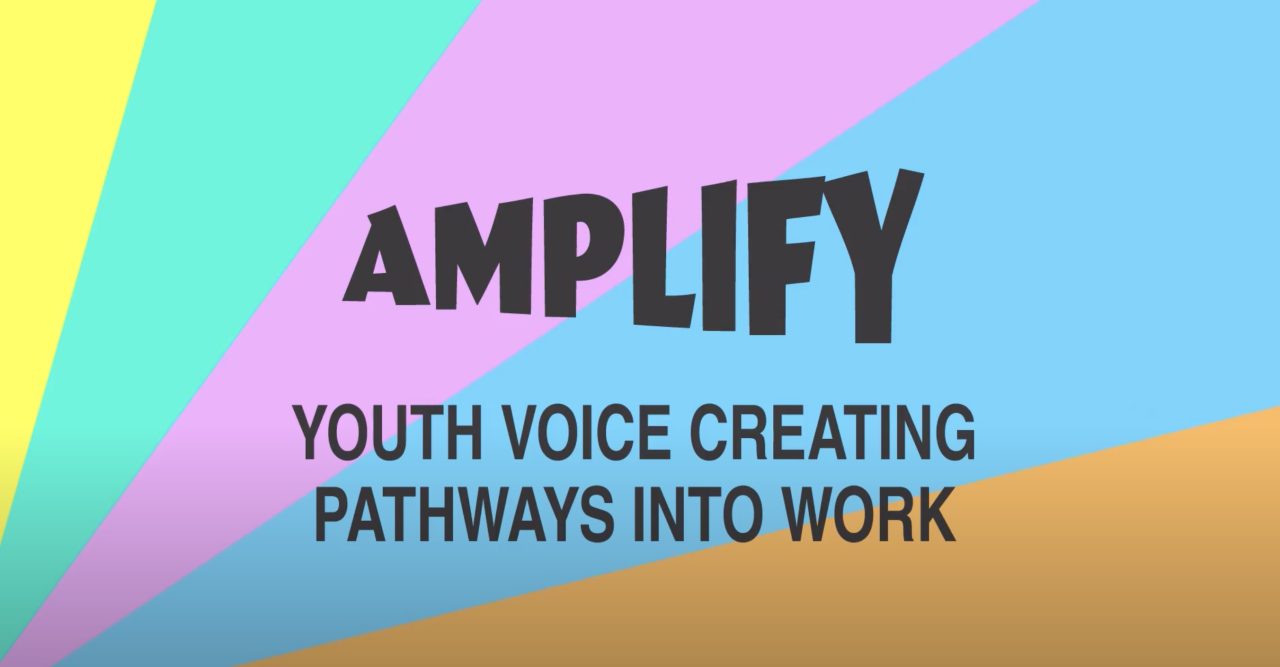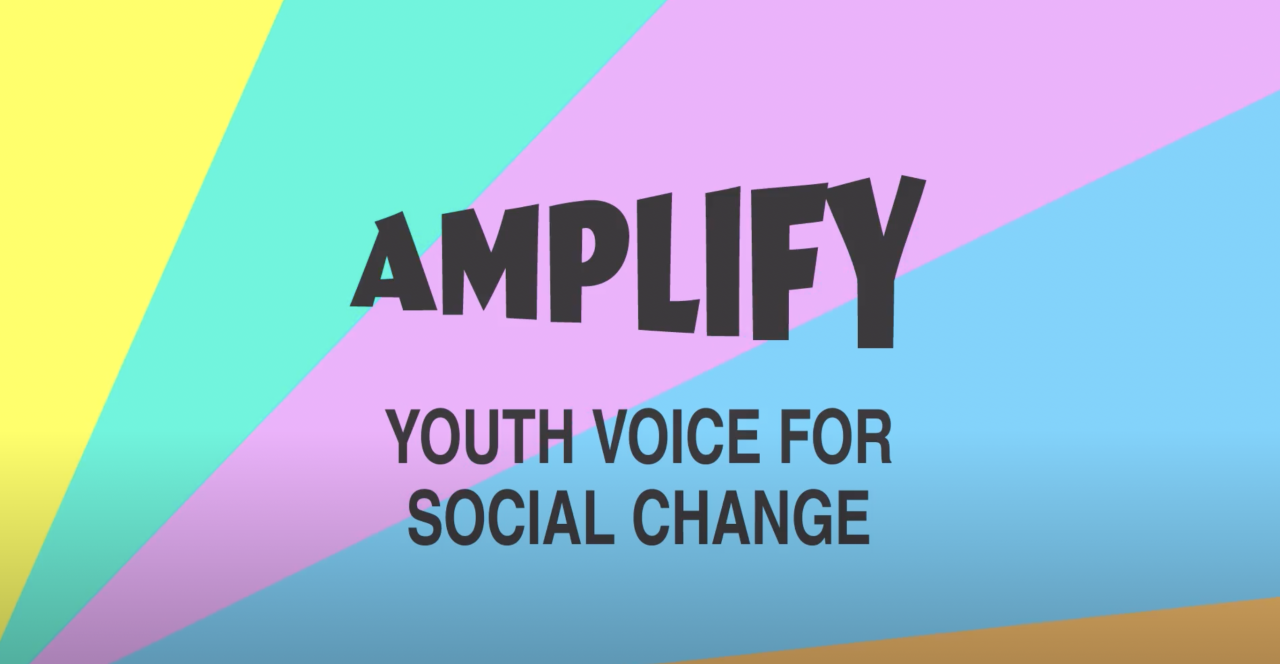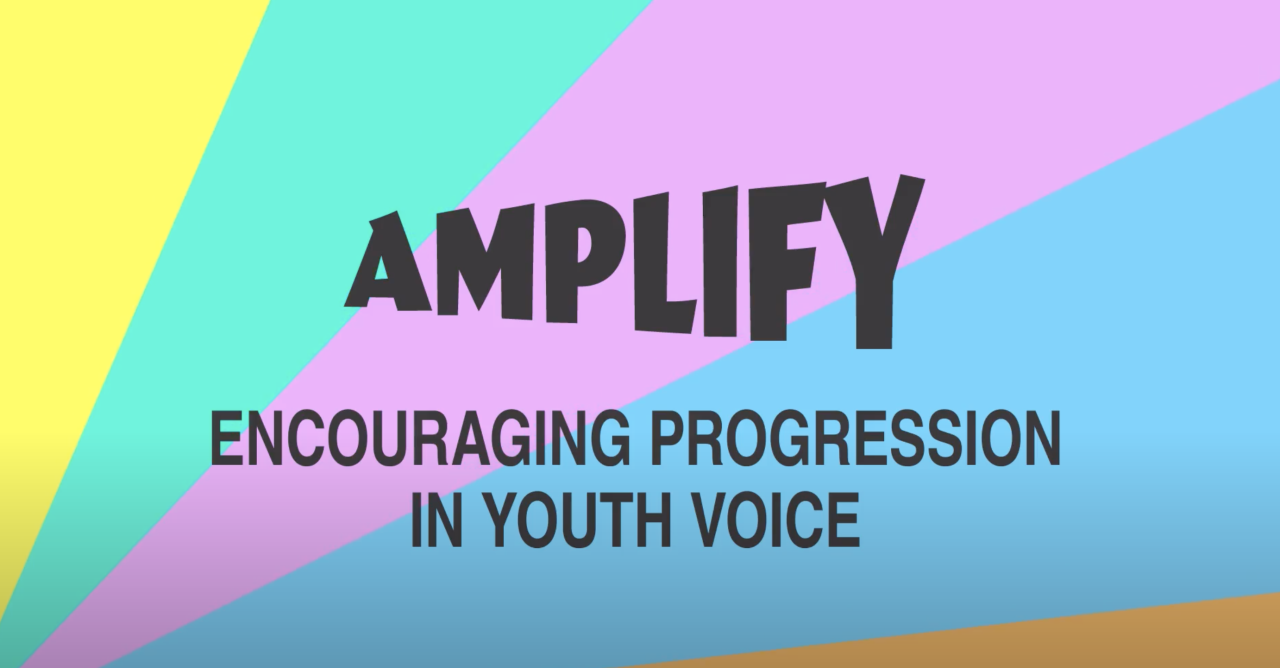Youth Voice Challenging Perceptions of Culture
An exploration of how young people create and engage in culture that may not fit the DCMS definition of 'culture'.
- Culture & Heritage
- Music
- Theatre & Performance
- Changemakers
When we talk about ‘youth voice’ in relation to art and culture, what we quite often mean underneath is ‘youth voice in relation to a predetermined notion of art and culture’. Probably something close to the DCMS-specified list of artistic and cultural forms. Or art and culture as currently practiced by our organisation, which we would like some input and guidance on. In essence, our notion of art and culture, and not the young people’s.
This last edition of Amplify asks us some good and hard questions here.
If you are a pragmatist, the above situation isn’t necessarily a bad thing, and it needs to happen if change is going to continue. Done well youth voice is one of the mechanisms by which young people can engage with and shape these predetermined forms of art and culture and the organisations that deliver them. And there are lots of examples of this being done with absolute integrity and quality in this Amplify series.
Engagement with this existing artistic and cultural base is also how young people learn from, question, reshape and build upon what has gone before. They have an equal right to this foundation – even though access is currently unevenly distributed – and nuanced understanding of the past can surely only be a good thing in a world where we all tend to leap so often to such rapid, partially informed judgments and actions.
But art and culture isn’t a static list or predefined set of boxes and content simply to be passed on down the line. It is a living, breathing, pulsing, and developing organism, and it is often best and most powerfully driven and developed by young people themselves. Over the last 70 years in particular, children and young people have been generative of extreme innovation and development in relation to artistic and cultural practice and form. They constantly change and shape what we all then come to experience, consume, engage in, and see as art and culture in the first place.
And they do this without steering groups and participation projects, without youth boards and consultation strategies. They do it by making, inventing, and producing bold, confounding, challenging art and culture in their own ways and via their own media, forms and networks, and communicating about it using their own labels, channels, materials and language. They are artistic and cultural special agents, and they are so often brilliant. They’re making change happen and they’re doing it every day.
When they do this, they are also, of course, giving voice to what they think and feel; what they want to see change in the world and why. They are speaking about and aiming to shift and shape what matters to them - society, environment, identity, history, community, emotions, belonging, wellbeing, hope and despair, symbolism, future possibilities... – but doing this in their own way, not ours. They are driven, socially engaged, often entrepreneurial, out there turning dreams and ideas into reality. How fantastic is that.
So what does this mean? First, if we are serious about children and young people’s voice we have to pay attention. But not just to what they say about ‘our art and culture’. We have to actively listen to that voice expressed via its own forms and on its own terms and do the necessary work to understand what is being said, why, and what we then need to do about that, given we so often have power in relation. We also need to look out for, engage with, platform, and amplify the bold and brilliant artistic and cultural practice generated by young people themselves, even if it isn’t on our immediate list or fitting quite within our existing boxes. As the participants in this final episode suggest, that is youth voice unadulterated and, as it should be, on its own terms. The future lies that way.
-
Matt Little
Head of Research and Impact, Real Ideas
matt.little@realideas.org
Croydon
Jayden-Josiah: The difference that I think I'm making by being in Young Leaders is that I am expressing my voices and what I believe in and how I think Croydon and London and the whole world needs to be treated in different cultures.
Lizzie: I do feel represented in terms of community because there's a lot of ethnic minorities in Croydon. in terms of people in power, not really. I feel like we still haven't reached that level where we have ethnic minorities in power in Croydon.
Dorcas: Being in a young person's group, it makes me feel like my voice has a meaning to it and I can actually change stuff in the Croydon community, because usually like kids voices, they don't really have a say in like anything that happens in Croydon or how we feel about the change in it. But this group makes me feel important and my voice is actually heard.
Jayden-Josiah: Adding on to what Dorcas said, I believe that there should be not just young leaders in Croydon but in every borough in London, maybe not even in London, but in every city in the UK, every little borough
Ciara: In terms of the role that partnerships have played, they've been crucial and core to the building of the group from the original partnership with our youth engagement team from within the Council through to the LCEP lead strategic partners that work with us both on a strategic level but also on a delivery level.
Jimi: I've got a lot of black friends, a lot of friends from the Asian community, and I've got most of my family members are Scottish, American, French, so culture's quite important to me.
I feel like I've got a lot of opportunities. I play football, I go to a drama class, I play in a band and I feel like a lot of people don't have the opportunities that I have. So I feel that I'm a bit overrepresented compared to a lot of people. I'd like the government to put more money into the council and to make Croydon a better place.
Audrey: With the population being so high with young people, I think it's even more important for them to be able to champion for other young people and make opportunities and get to those positions where they can talk to people who are the change makers
within the borough. So I think it's really important that young people are given the chances to talk out because they don't need us to be their voice.
Ashleigh: Culture to me, it means how, like, a community kind of builds their own, like aesthetic, talk, something like – things that they can recognise within each other.
In terms of what is considered culture it is very much just white and British, and especially when we do try to like push through to show different cultures throughout, it's usually met with, like, negative press.
A lot of people have set things up, but like over the years and many of them have ended up fading away due to just lack of the resources, lack of funding. And instead of us having to like wait on the council to eventually grace us with something for short term, it would be nicer to like be able to say “this group here they're doing this so let's support them in that, and this other group they're doing this so let's support them in that,” and all these groups coming together eventually helping each other, and building like a web and net together within the community itself to sustain these type of projects instead.
Zest
Lachlan: Project Refresh Lincoln is quite a fantastic piece of work that started originally in lockdown. Myself and a few other of my friends and colleagues helped facilitate these workshops with a lot of the local schools and young people in and around Lincoln.
And essentially we met them and we spoke to them about their thoughts, their feelings, what sort of stuff, like, comes to mind. From that, we then created these beautiful art pieces which were scattered all about Lincoln from the top end to the bottom.
After we put all the artworks out in the city, we took the young people and the schools round for like a tour, and there was one child, he's only nine years old, and he had this fantastic quote – and we were a bit sort of unsure as to how he would react when he saw it because it was quite a honest perspective on how he sees life. And I remember when I was walking with this group and he saw it, he was, like, screamed in ecstasy more than anything. He was really, like, happy to see it. And he was really excited to know that other people could see it too.
And it's just little things like that that prove that the work was worth the time and that it really did make a difference for him. And probably – and hopefully, more to the point – anybody else that saw it.
Cas: I really hope that there's no end of cultural experiences for young people coming up in the future.
Because we know that they are passionate about these things. They're passionate about creativity, about the environment, about mental health and relationships. But we're not seeing a lot for them to engage with.
Lincoln needs more excitement. I remember in one of the workshops we did, one of the young people in the primary school said that the city's too still, and the only thing that moves is the people and that there needs to be more life brought in to what is an amazing city at its heart, but doesn't really know how to show colour and life and excitement.
One of the best experiences that I've had while working with so many incredible young people was another primary school class where one of the students was talking about equality and diversity and how important it was to them that we were more understanding and accepting of the LGBTQ community.
And I got talking with them and talking about their own identity as a young gender fluid person, and as a trans person myself, being able to have that conversation with someone who's early on in their journey was super valuable for me. And I really hope that that experience for them as well was something that they could take away and that they could feel seen in times and places where they maybe otherwise don't.
Toby: I think what's really interesting when you work with young people is that they don't see arts and culture in the restrictive boxes that we often do as kind of established creatives. So those traditional boxes of art forms, of theatre, of dance, music, opera are often quite blended.
And so our work over the years has tried to emulate that. So our shows don't always, our show's and our work don't really neatly sit in specific art form boxes, and particularly in the pandemic where we've not been able to do theatre, we've stayed relevant by focusing on those voices and then finding other ways to amplify and share the stories that we've been hearing. So, rather than rigidly sticking to theatre, we've done projects like this creating public art or digital work to try and share those stories instead of just being stuck inside theatres, which were often closed throughout most of the last two years.
Rising Arts Agency
Euella: In terms of highlights and projects that we've done that really enjoyed and really stood out in terms of, like, changing the sector and thinking about doing things differently is, first of all, our OnBoard project.
That's a project that's been going on for the past three or four years where we have been actively recruiting and training and upskilling young people onto the boards of cultural organisations across the region.
We've been able to recruit, you know, just like just under thirty young people onto boards of cultural organisations. And to see the change that can happen when you mobilise organisations to do things differently.
We've got Be It, our radical leadership program which is taking a cohort of 20 young people across two years to really think differently about what do we need to really transform leadership who needs to be in these conversations, what do you need to be doing, how do we embed care into that and rest and reflection and collaboration into leadership?And how then do we move that? The learnings that we've done in this kind of beautiful radical leadership incubator and take that out to the sector in a way that doesn't feel too threatening but makes them move.
And then last but not least is our Who's Future Billboard campaign, which has been a campaign that we've done every year for the past three years. It started in lockdown, and it was a real opportunity to get young people out on the streets to talk about what is important to them.
Prince: Strengths and weaknesses of the sector…
Strengths. So they get stuff done, right?
They actually get stuff done and put a lot of effort into distributing the finances I guess. I mean, another strength is the fact that Bristol's got, this region's got a like massive national and international reputation. So it's doing something right.
I reckon a weakness is the risk aversion. Yeah. The UK is known for being a pioneer for culture all around the world. Case in point, someone like Jamal Edwards, right? Without him, music wouldn't be what it is now. Across the entire world. Someone like that got a £20 phone camera, d'you know what I'm saying? And we have Ed Sheeran as a result. So we know that people from underrepresented communities can change the world. It just so happens that the people making decisions aren't brave enough to hedge their bets on those communities.
Eli: We talk a lot about culture being narrow or exclusive or gate-kept by people who have power and money and resources and the siloing that happens in buildings and in organisations.
But for us, culture and community are so much more than starting to find our ways into these organisations. And starting to find our ways into this programming and these bills of shows and these gallery programmes and all of those kinds of things is beyond that for us, I think, because culture is people, and culture is history, and culture is community, but it is also – it's life.
And I think that we have become so accustomed within a capitalist understanding of culture and arts and culture that's led by funding and grants and jobs and commissions that it's become divorced from people and personhood, and Rising is mobilising to bring people back
into the conversation, mobilising towards a world where people can just make those things because it makes them feel good, because beneath that, they have a safety net of universal basic income, of better pay, better, working conditions, because everything is a workers rights issue. And we cannot truly enjoy culture, I don't think –and we don't think – if we are not also free.
Croydon Creative Collective
Croydon Music and Arts (CMA) is a service within Croydon Council. We work to ensure children and young people in the borough have access to creative opportunities. Their mission is to amplify young people’s voices and enhance their lives and life chances through the arts.
You can hear what they have to say from 00:05 in the video
Zest
Zest Theatre is proudly based in Lincoln and works closely with local partners to support the development of Lincolnshire’s arts and culture sector. Zest exists to make space for young people to be heard, using creativity to amplify their voices through theatre and cultural experiences.
You can hear what they have to say from 04:02 in the video
Rising Arts Agency
Rising is a young, creative, inclusive, radical, adaptable and provocative agency. Led by young creative thinkers they advocate for sector and cultural change through campaigns, research projects, industry consultation and supply agency services.
You can hear what they have to say from 08:08 in the video
A music video created by Zest Advisory Board in collaboration with Future Proof, that reflects on a year of living with the pandemic
A blog by a young person who ran a social action project with support from the Youth Empowerment Fund


